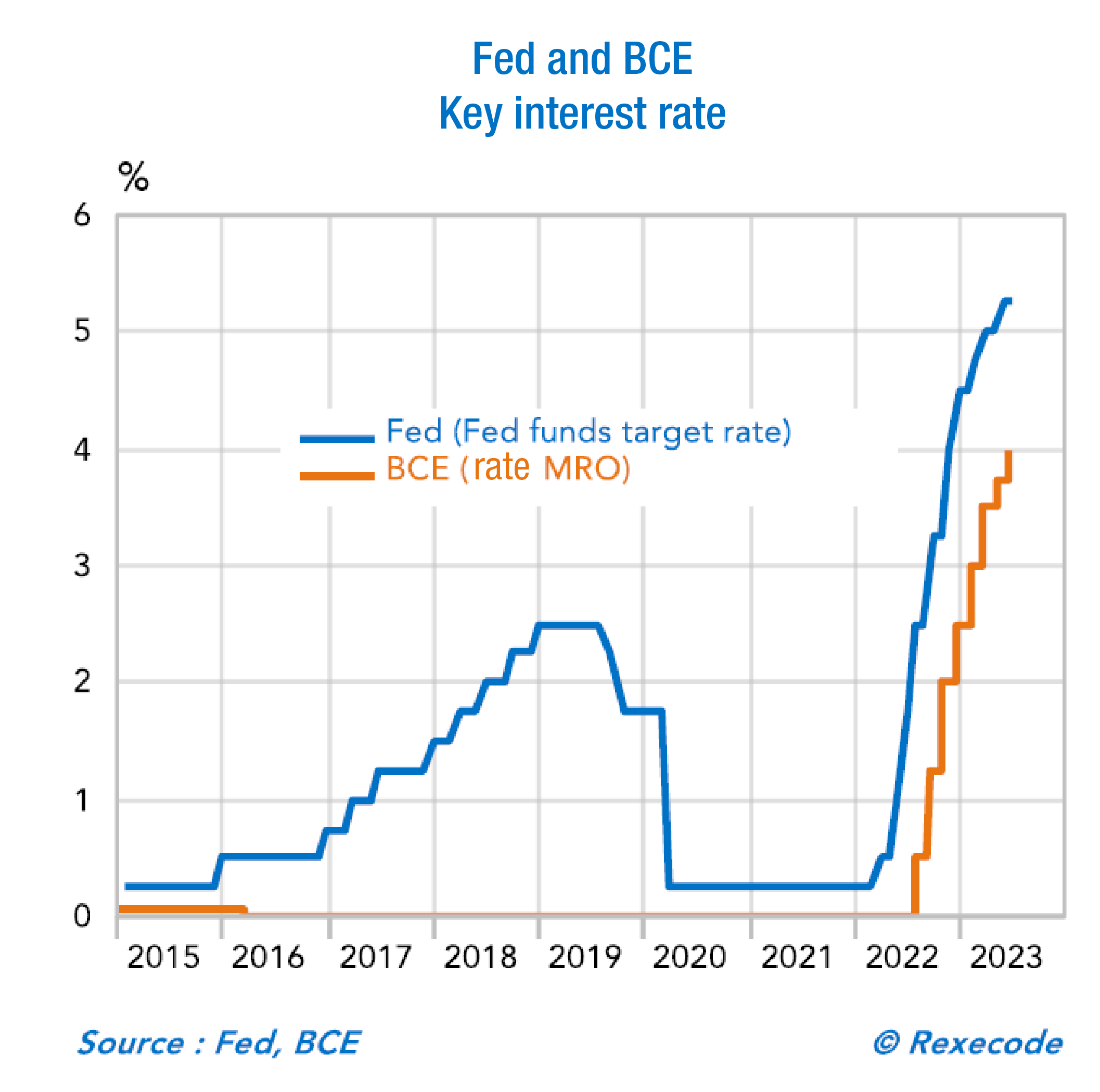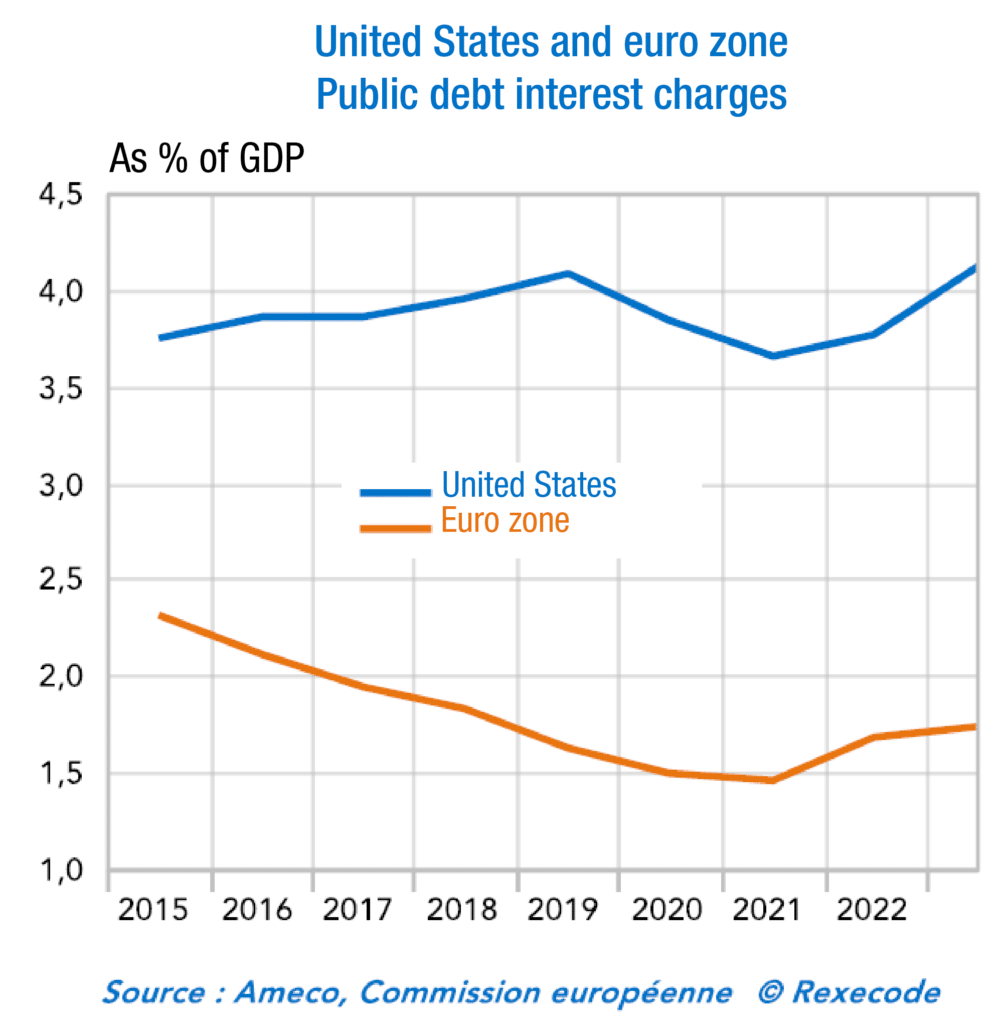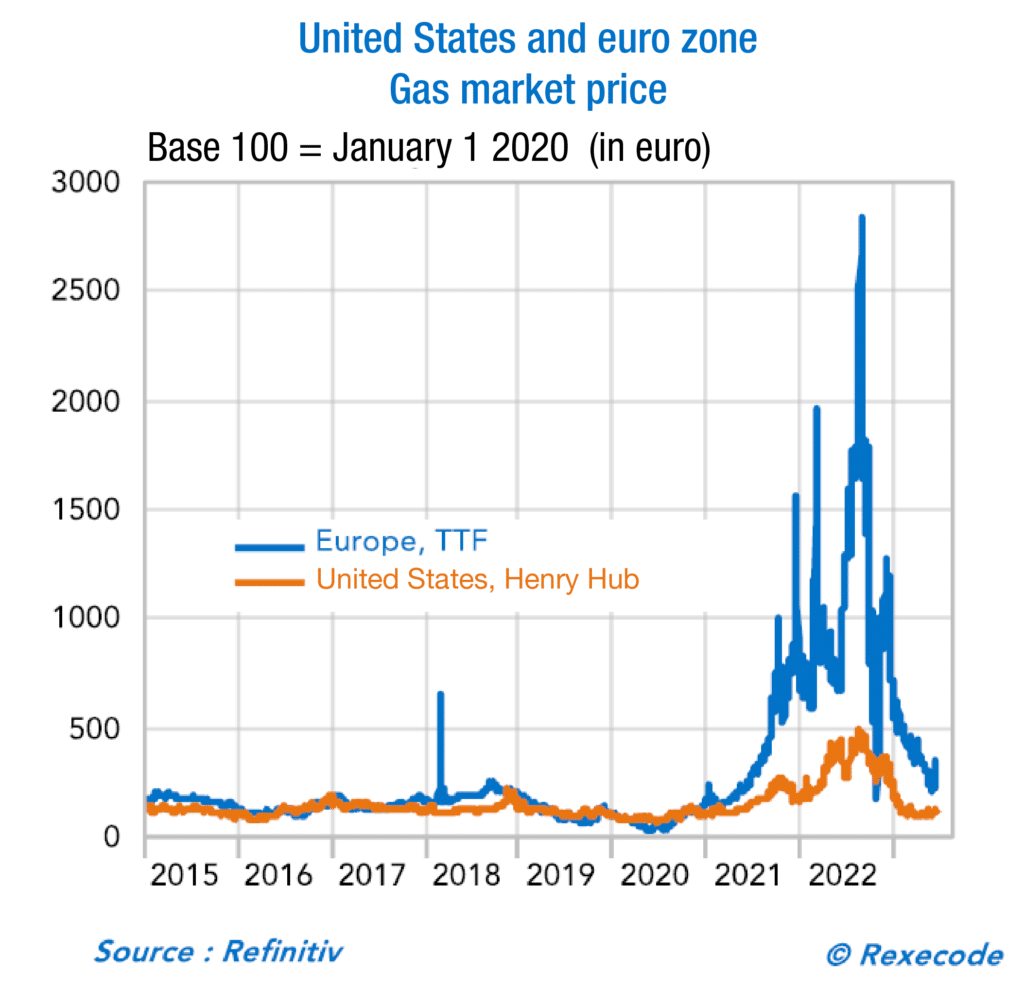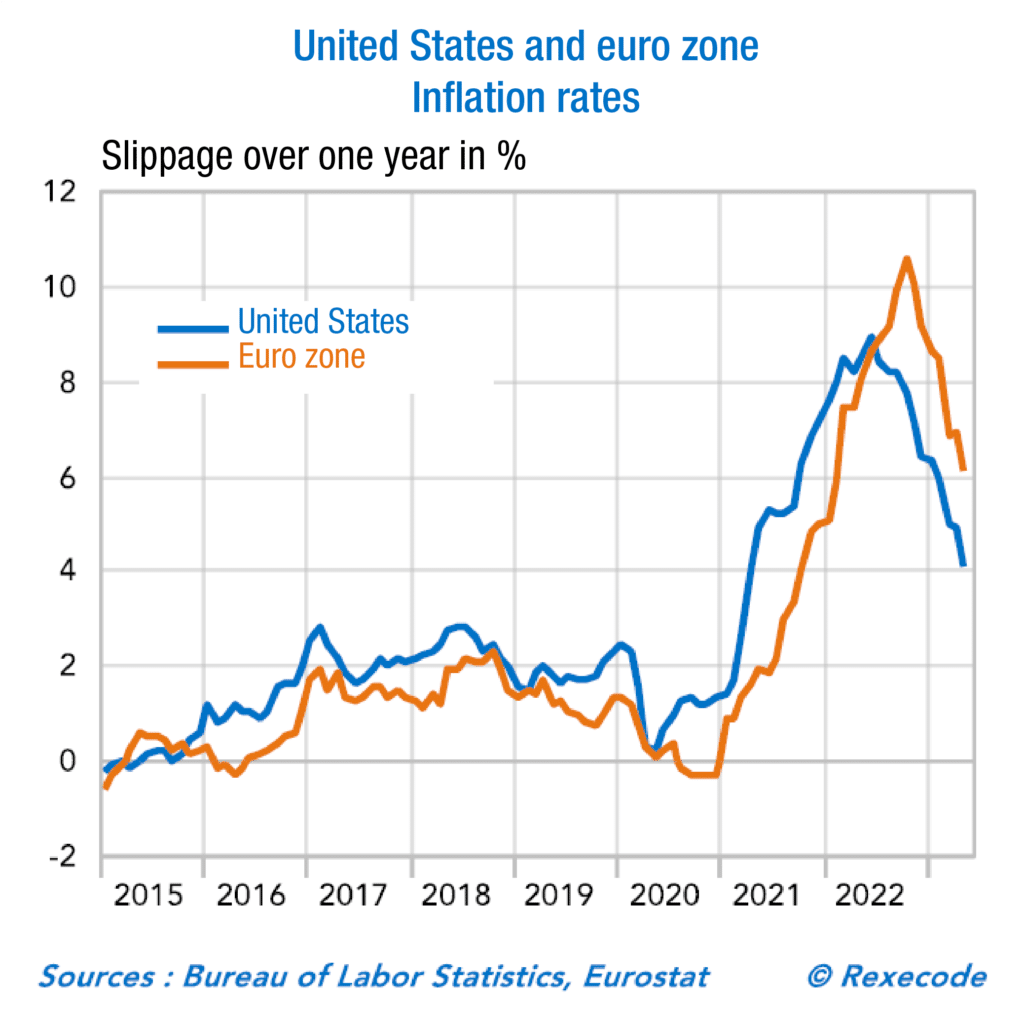
THE ECB AND THE FED IN THE FACE OF INFLATION
On 14 June, the American central bank, the Fed, announced, for the first time in months, that it would stabilise its key rate between 5% and 5.25%, while the next day the European Central Bank (ECB) continued to raise its rate to 4%, the highest recorded since 2008. The Fed decided to stop raising its key rate as it now approaches the inflation rate. On the other hand, the ECB continues to raise its key rate but it is expected to stop soon or more than likely slow it down. With interest rates at the level of price rises (zero “real” interest rates), is the matter closed and has inflation been defeated?

It is not that simple. Strong constraints weigh on both sides of the Atlantic. The US government now has to pay nearly $1 trillion in debt service every year. 5% interest on a stock of $32,000 billion of federal debt represents $1,600 billion of interest to be disbursed every year. Knowing that the government’s revenues for 2023 will be $4,000 billion, 40% of the budget revenues is already spoken for for debt service. This makes the return to equilibrium difficult and the explosion of the debt almost inevitable.

In Europe, although the debt burden turns out to be lower, the energy issue poses a heavy threat: on the one hand, the United States is self-sufficient thanks to the exploitation of gasBlockchains using smart contracts, such as Avalanche or Ethereum, have several tokens, so is gas. Gas is used
to pay transaction fees or to carry out smart contract operations. Lire la suite and shale oil, and on the other hand, Europe is dependent from overseas. Raising interest rates slows down the economic machine and, at the cost of a limited recession, the Fed has a chance of stopping inflation. But the ECB is facing a more complex situation: the rise in interest rates risks leading to a recession without defeating inflation, which depends largely on energy prices. Energy sanctions taken against Russia, expensive American LNG (liquefied natural gas, shale gas) and an accelerated energy transition make energy structurally more expensive.

The combination of inflation and high interest rates could settle in the eurozone, while the United States, in order not to explode the burden of its debt, could return to rates close to zero… at the risk of restarting price increases. This is the challenge of the coming months for both the Fed and the ECB; the management of their key rates is more than ever a crucial point! The budget deficits, which can hardly continue at this pace, especially in the USA, and the cost of energy, which must be controlled in Europe, are at the heart of the debate.

Sources : Rexecode, Banque Delubac & Cie, Refinitiv, Turkstat, INDEC, Central Administration for Statistics, INSEE